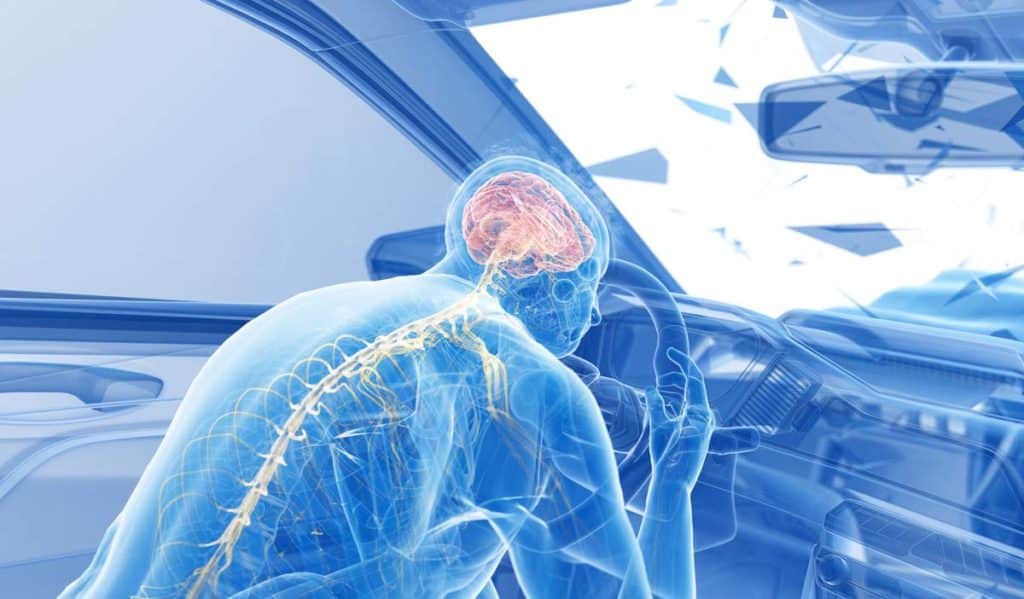Not many people take concussions as seriously as these injuries deserve. Concussions are a relatively common injury, and many people consider them an uncomfortable but temporary problem. That’s not the case. The medical term for concussions is traumatic brain injuries (TBIs), which helps underline the severity of even a “mild” concussion.
Even the least debilitating TBI can still have long-term effects, and car accidents are a significant cause of TBIs. In fact, car accidents are the second-most common cause of TBIs, leading to 20% of traumatic brain injuries in the US annually. When it comes to fatal TBIs, car accidents were the most common cause.
For traumatic brain injuries that don’t prove fatal, there’s still a long road to recovery. Your brain is arguably the most critical organ in your body, after all. When it gets injured, you will face both physical symptoms and mental problems. TBIs can even change your personality. If you or a loved one has recently experienced a TBI in a car accident, you may have a much more serious problem than you realize.
What Is a Traumatic Brain Injury (TBI)?
A traumatic brain injury is usually caused by hitting your head on something, but they can also result from whiplash. Either way, your brain essentially gets bruised. The impact or the sudden back-and-forth motion causes your brain to hit the inside of your skull, damaging it. This damage causes your brain to lose some of its capacity to run your body, temporarily or perhaps even permanently.
Concussions, the most common type of minor TBI, can cause
- Nausea
- Dizziness
- Headaches
- Light sensitivity
- Fatigue
- Irritability
These symptoms result from nerve fibers in the brain failing to fire properly because of bruising, swelling, or even bleeding. More serious TBIs, known as moderate TBIs, can have all of the above symptoms, along with:
- Seizures
- Dilated pupils
- Slurred speech
- Confusion or agitation
- Inability to fully wake up
- Weakness or numbness
- Amnesia
These are dangerous symptoms and should never be ignored. They are more likely to be signs of intracranial bleeding or even torn nerve tissue.
Finally, severe TBIs can cause:
- Comas
- Permanent mental disabilities
- Permanent personality changes
- Permanent physical disabilities
- Death
An injury can appear to be a mild TBI but get worse over time. Getting appropriate medical care from the start and taking the time to recover before returning to work is crucial if you want to minimize symptoms of a TBI. It can even save your life.
Short-Term Effects and Recovery
Concussion symptoms may be most obvious in the first few days to weeks. Even if a head impact doesn’t cause you to lose consciousness, you will likely notice a headache and mild dizziness. If you have any concussion symptoms for more than a few hours after an injury, you should go to the doctor, especially after a car accident.
If you are diagnosed with a concussion or TBI, the most common course of treatment is simply to rest, both physically and mentally. Your brain needs time to heal, just like any other part of your body. Light and sounds are likely to trigger headaches and worsen concussion symptoms, as will physical activity. To properly recover from a concussion, you will need time to let the injury heal and reconnect damaged neurons. Ideally, you’ll take time off of work for the three to ten days that mild concussions symptoms last.
More severe TBIs may also require hospitalization, especially if you lost consciousness or experienced any amnesia after the accident. This may be for just a day or so, or it may be longer if your symptoms worsen. Since serious TBIs can involve bleeding in the brain, hospitalization can help prevent a temporary concussion from becoming more serious.
Long-Term Effects and Recovery
The long-term recovery from a concussion can be complicated, especially for more severe head injuries. If your TBI causes more serious symptoms like personality changes or mental or physical disabilities, you may experience a few different treatment methods. These treatments are all types of rehabilitation.
Depending on the effects of your TBI, your rehabilitation program might involve:
- Psychiatric care to help treat accident-caused emotional disorders
- Emotional therapy to help you process emotional and personality changes
- Speech and language therapy to help you recover speech abilities
- Physical rehabilitation to retrain limbs or motions lost in the accident
- Occupational retraining to help you find a new career if you can no longer perform your previous job
These types of rehabilitation may last several months. Most recovery from even severe TBIs occurs in the first two years after an accident, so rehabilitation may continue to help you regain as much independence and mobility as possible.
Post-Concussion Syndrome
About one in five people will experience post-concussion syndrome, which occurs when the symptoms of a concussion last longer than six weeks after the accident. People who have had multiple concussions are more likely to experience post-concussion syndrome, no matter how mild a given TBI felt.
Post-concussion syndrome generally involves long-lasting dizziness, headaches, sleep problems, and confusion. As a result, the syndrome can be considered a debilitating medical condition, even if the originating TBI was mild. It may be either physical or psychological, but either way, people with post-concussion syndrome report long-term, adverse effects on quality of life.
Fight for Your Right to Recover
Concussions are a long-term injury for many people. Getting appropriate medical care and time to rest is critical if you want to get back to your life. After a car accident, you may need to put up a legal fight to have your medical bills and wages lost compensated.
If you are in that situation, don’t hesitate to reach out for help. A traumatic brain injury makes many things harder, especially tasks like navigating complex legal documents. A qualified car accident lawyer can help you understand your options and build a case to receive the compensation you’re due. Don’t one accident define your life. Take back control, and contact a qualified attorney today to help you handle your car accident TBI case.





